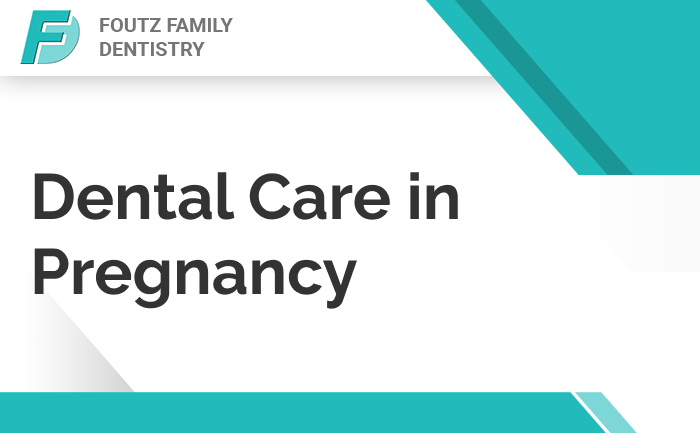
Pregnancy affects every aspect of a woman’s health, including oral health. Women must continue to go to the dentist regularly while pregnant to catch any dental concerns before they get out of hand.
How Does Pregnancy Affect Oral Health?
The body goes through many changes during pregnancy, which can manifest in different ways:
- Levels of hormones like progesterone and estrogen increase during pregnancy, which can increase your risk of oral health issues.
- Eating habits often change during pregnancy, and the kind of food you eat affects the health of your teeth and gums.
- Many women brush and floss their teeth less while pregnant, either because their gums are more sensitive or because the process makes them nauseous.
Because of these changes, pregnant women are more likely to deal with the conditions below.
Cavities
Pregnant women are more likely to develop cavities. If a cavity is left untreated during pregnancy, the bacteria can be passed to the baby during pregnancy and lead to problems for them after they’re born. Filling these cavities when they occur is essential.The prevailing wisdom is that non-silver filling materials are the best to use in this situation. Asking your dentist to do any fillings with a silver mercury-free composite resin filling is a perfectly reasonable thing to ask for
Gingivitis
Gingivitis is very common in pregnant women, with about 60 to 75 percent of them dealing with it in some form. Gingivitis is inflammation of your gums that, if left untreated, can lead to serious gum disease. Signs that you may have gingivitis include:
- Redness or swelling of the gums
- Tender gums
- Bleeding of the gums, no matter how gently you brush
- Shiny gums
Other Potential Concerns
There are a few less common dental concerns that can develop during pregnancy. While they aren’t as common, watching for them and bringing concerns to your dentist is essential.
Other pregnancy-related dental concerns include:
- Loose teeth: High levels of hormones can temporarily loosen your teeth while pregnant.
- Pregnancy tumors: These tumors aren’t cancer but are red, raw lumps on the gums between your teeth.
- Tooth erosion: If you struggle with excessive vomiting during pregnancy, your teeth may be exposed to too much stomach acid, leading to enamel erosion.
Preventing Dental Problems During Pregnancy
The best way to prevent dental problems during pregnancy is to continue going to your regular six-month checkups before and during your pregnancy. When you arrive at your appointment, make sure you tell your dentist that you’re pregnant. While pregnant, it is advisable to forgo routine x-ray exposure. In an emergency, however, today’s low dose options for x-rays will enable the best, safest outcome. This will ensure they give proper, safe treatment for you and the baby.
It’s also wise to let your dentist know if any of the following apply to you:
- You’re on medication while pregnant (including prenatal vitamins).
- Your pregnancy is high-risk.
- Your prenatal care provider has talked to you about oral health concerns.
Takeaway
Your oral health is a vital part of your prenatal care. Make sure you stay consistent with your dental checkups and let us know if you notice any concerning oral symptoms. Contact us today to schedule a cleaning to keep your mouth healthy during pregnancy and beyond.









